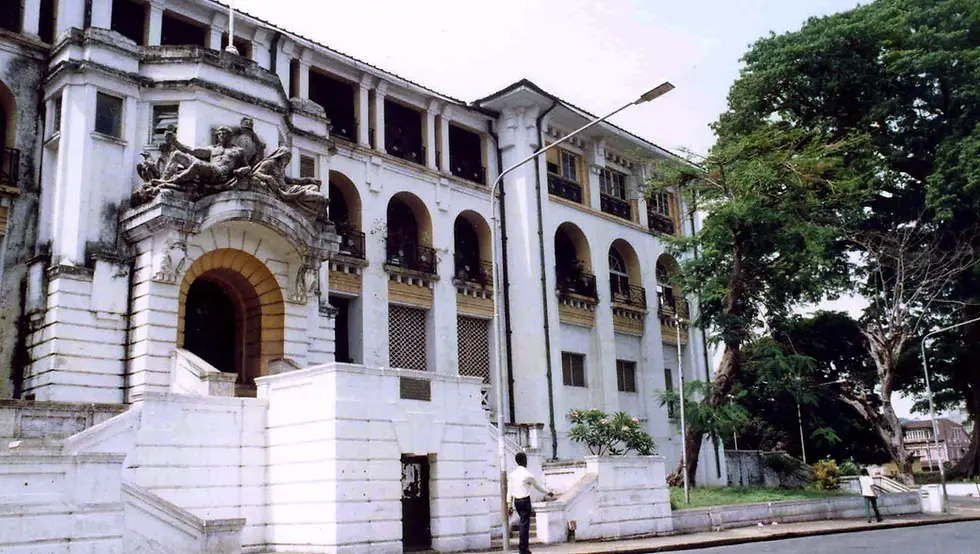
Nuretta Mariatu Kamara, the lead nurse at the outpatient unit of Emergency Hospital, testified in court regarding her role and the medical team’s efforts when Abdul Kpaka brought Sia Fatu Kamara to the hospital on August 13, 2024. Kamara’s testimony is part of the ongoing murder trial against Kpaka, who is accused of killing his girlfriend, Sia Fatu Kamara, at his residence in Goderich, Freetown.
In her testimony, Kamara recounted how her team responded to the emergency when Sia was brought to the hospital. She explained that upon initial examination, she noticed that Sia’s upper limbs were flexible, but there was no pulse, and she was not breathing. Kamara instructed one of her nurses to remove Sia’s clothing while another nurse, Amida Mariama Turay, attached monitors to Sia’s body to assess her vital signs. However, the monitors indicated no signs of life.
“I checked Sia’s pulse and breathing, but there were none. I tapped her on the shoulder to check for a response, but there was none,” Kamara told the court. “The monitor showed no oxygen levels, no blood pressure, no breathing, and no heart rhythm.”
Kamara immediately called for a team of both international and local doctors. She initiated cardiopulmonary resuscitation (CPR), a life-saving procedure performed on patients who are not breathing. Despite their efforts, which included administering drugs like adrenaline and naloxone for 20 to 25 minutes, the doctors ultimately declared that Sia was dead on arrival.
“The doctors informed me that the patient was clinically dead on arrival,” Kamara testified.
After the failed resuscitation, Dr. Kallon, one of the attending doctors, instructed Kamara to take a statement from Kpaka. Kamara, along with the international doctors, approached Kpaka, who was visibly distressed and crying. She consoled him before asking what had happened to Sia. Kpaka claimed that Sia had fallen and hit her mouth. It was at this point that one of the international doctors informed Kpaka that Sia had died before arriving at the hospital, a message Kamara repeated to him in Krio. She also noted that she joined Kpaka in his grief as he cried.
Kamara further explained that she advised Kpaka to take Sia’s body to the mortuary, as the Emergency Hospital did not have the facilities to handle the deceased. After giving this instruction, Kamara and her team wrapped Sia’s body and placed it in the hospital’s waiting room. Shortly after, three women arrived—one identifying herself as Kpaka’s sister and the other two as Sia’s sisters. Kamara recalled that the women, along with some unidentified men, took possession of Sia’s body at the hospital’s exit.
During cross-examination, defense counsel Emanuel Teddy Koroma questioned Kamara about her experience and procedures at the hospital. Kamara, who has been a nurse at the Emergency Hospital for 13 years, confirmed that only doctors can officially declare a patient dead. She clarified that the resuscitation process was a team effort, involving multiple doctors and nurses due to its physically demanding nature. She also confirmed that Sia had been professionally declared dead upon arrival at the hospital.
Kamara acknowledged that the hospital is equipped with CCTV cameras, which could provide footage of how Sia was brought into the facility. She reiterated that a patient is only declared dead after all medical interventions have failed.
After hearing testimony from both sides, Justice Momoh Jah Stevens remanded Abdul Kpaka in custody at the Male Correctional Center in Freetown. The trial was adjourned to Friday, November 1, 2024

Comments